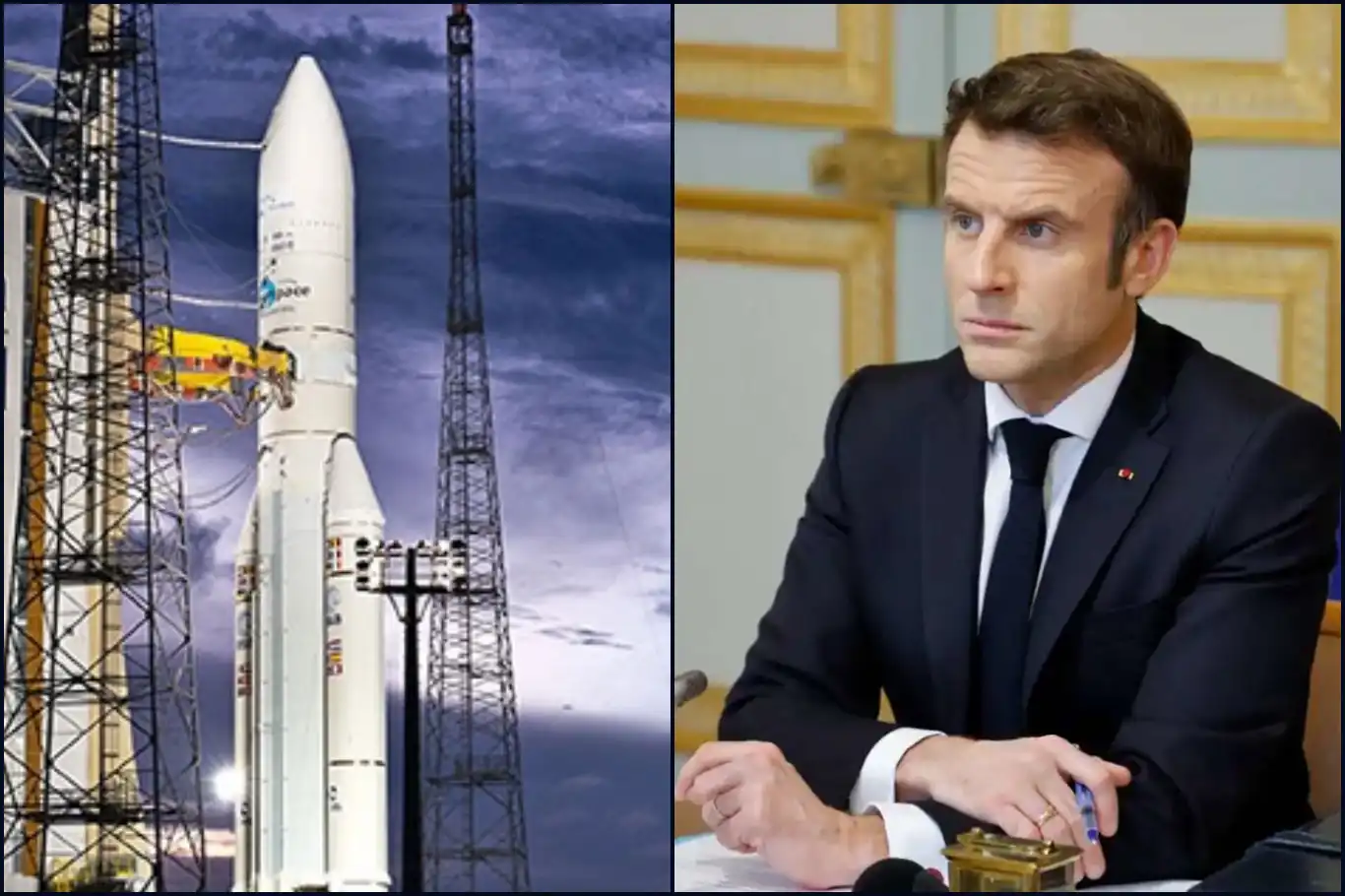France to launch national space strategy amid growing orbital threats


French President Emmanuel Macron is set to unveil the country’s National Space Strategy on Wednesday, emphasizing the growing importance of space in global security and the need for Europe to defend its orbital interests.
Delivering his speech in Toulouse, home to France’s space agency CNES and leading aerospace companies including Airbus, Macron will also inaugurate a new facility housing 500 military officers focused on space operations.
“Space is no longer a peaceful place,” the French presidential palace said. “It is a place of conflict, increasingly intense conflict, fueled by the growing number of satellites in orbit and aggressive actions from competitors, including Russia.”
The strategy aims to counter a range of threats, including satellites approaching French assets to spy, jamming and blinding systems, and weapons deployed in orbit or from the ground designed to damage or destroy critical national satellites. The palace highlighted reports of Russia’s deployment of nuclear-capable satellites under the Sputnik S program.
“Attacks on satellites can paralyse entire nations,” Macron’s administration warned, noting that damage to orbital infrastructure could create debris and disrupt both civilian and scientific operations.
As part of the strategy, France plans to deploy patrol and surveillance satellites by 2027, which will act as “small fighter jets” capable of monitoring, jamming, or countering unfriendly space assets. Additional capabilities include lasers and electromagnetic jammers across multiple frequencies to neutralize enemy observation satellites.
While the plan strengthens France’s strategic autonomy in space through modernization, domestic investment, and talent development, Macron is expected to call for greater European collaboration. Germany, co-hosting a global space summit with France in April 2026, has pledged €35 billion for space projects by the end of the decade.
German Defense Minister Boris Pistorius emphasized that satellite networks are critical to modern society and warned that future conflicts will extend beyond Earth. Recent tracking showed Russian reconnaissance satellites targeting two German satellites, underlining the urgency of investing in both defensive and offensive capabilities.
At the European level, the European Commission has introduced a Defence Readiness Plan, aiming for €800 billion in investment across member states by 2030, with a European Space Shield as a key initiative to safeguard space assets. The Commission also proposed €131 billion for defence and space in its 2028-2034 budget, with €60-70 billion allocated for defence and the remainder for space development.
Macron’s address signals a decisive move for France and Europe to secure their space infrastructure, strengthen orbital defense, and maintain strategic independence amid rising geopolitical tensions. (ILKHA)
LEGAL WARNING: All rights of the published news, photos and videos are reserved by İlke Haber Ajansı Basın Yayın San. Trade A.Ş. Under no circumstances can all or part of the news, photos and videos be used without a written contract or subscription.
Israeli settlers carried out a violent pre-dawn attack on Friday in the town of Deir Dibwan, east of Ramallah, assaulting Palestinian workers and stealing dozens of livestock in the latest incident in a sustained campaign of settler violence across the occupied West Bank.
The Japanese government of Prime Minister Sanae Takaichi on Friday approved a record draft budget for the coming fiscal year, attempting a delicate balancing act of bolstering a fragile economy with massive spending while trying to placate jittery bond markets by curbing new debt issuance.
The Orphans Foundation (Yetimler Vakfı) has delivered its December stipends to orphaned children in Bangladesh, providing critical support for their basic needs through the contributions of donors.
A German journalist detained by Israeli forces following the interception of a Gaza-bound aid vessel has accused Israeli prison authorities of sexually assaulting her while in custody, triggering renewed outrage over Israel’s treatment of international activists and detainees.